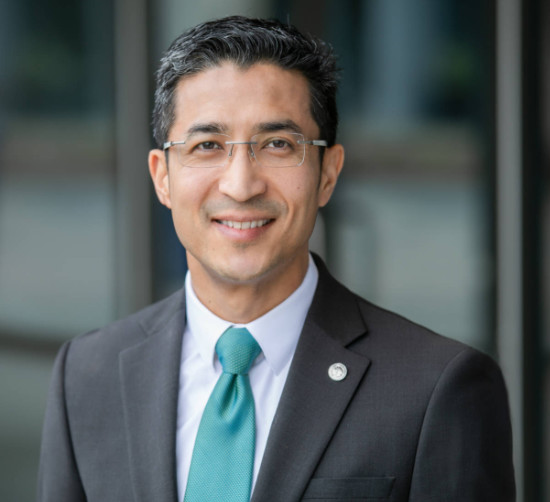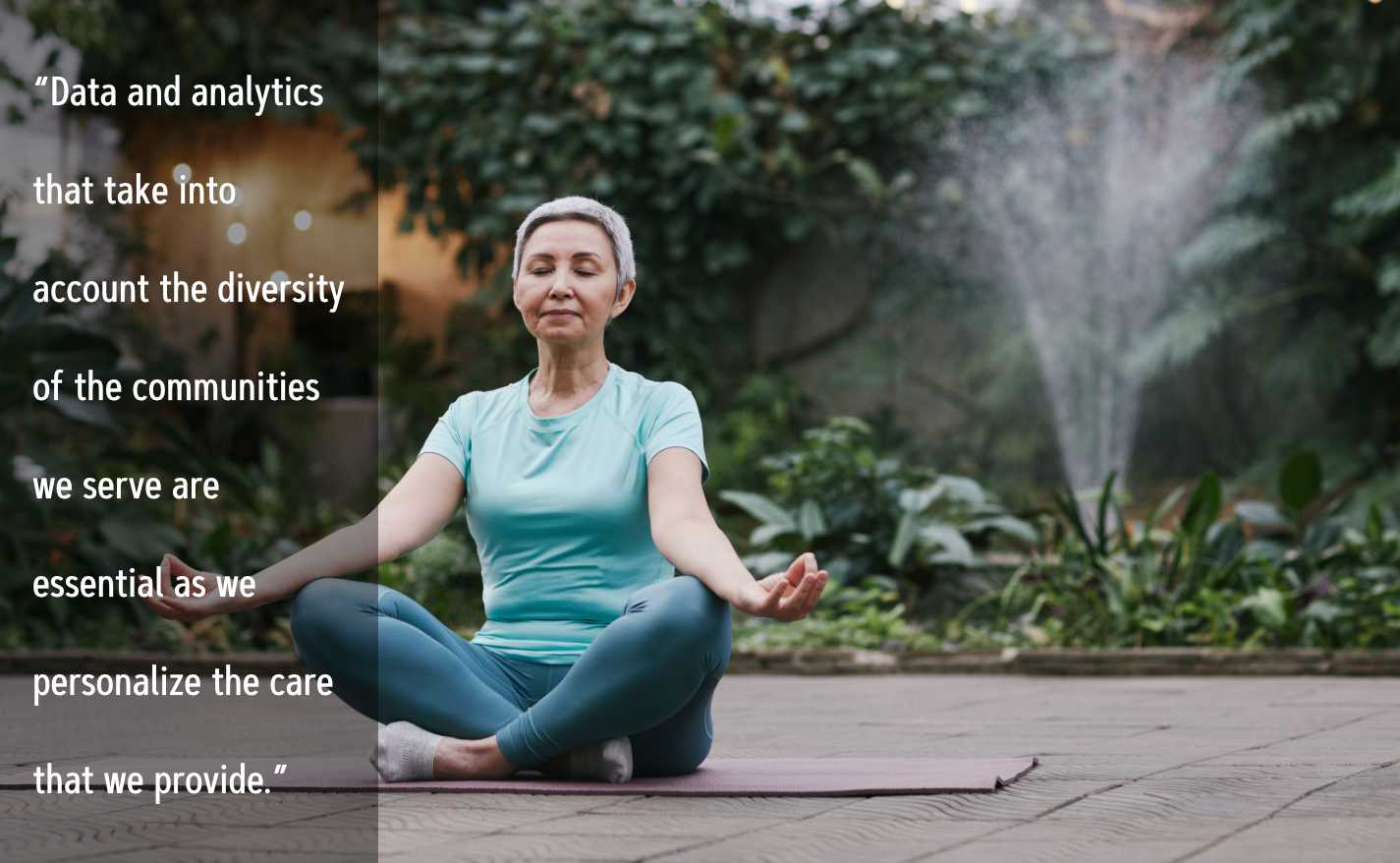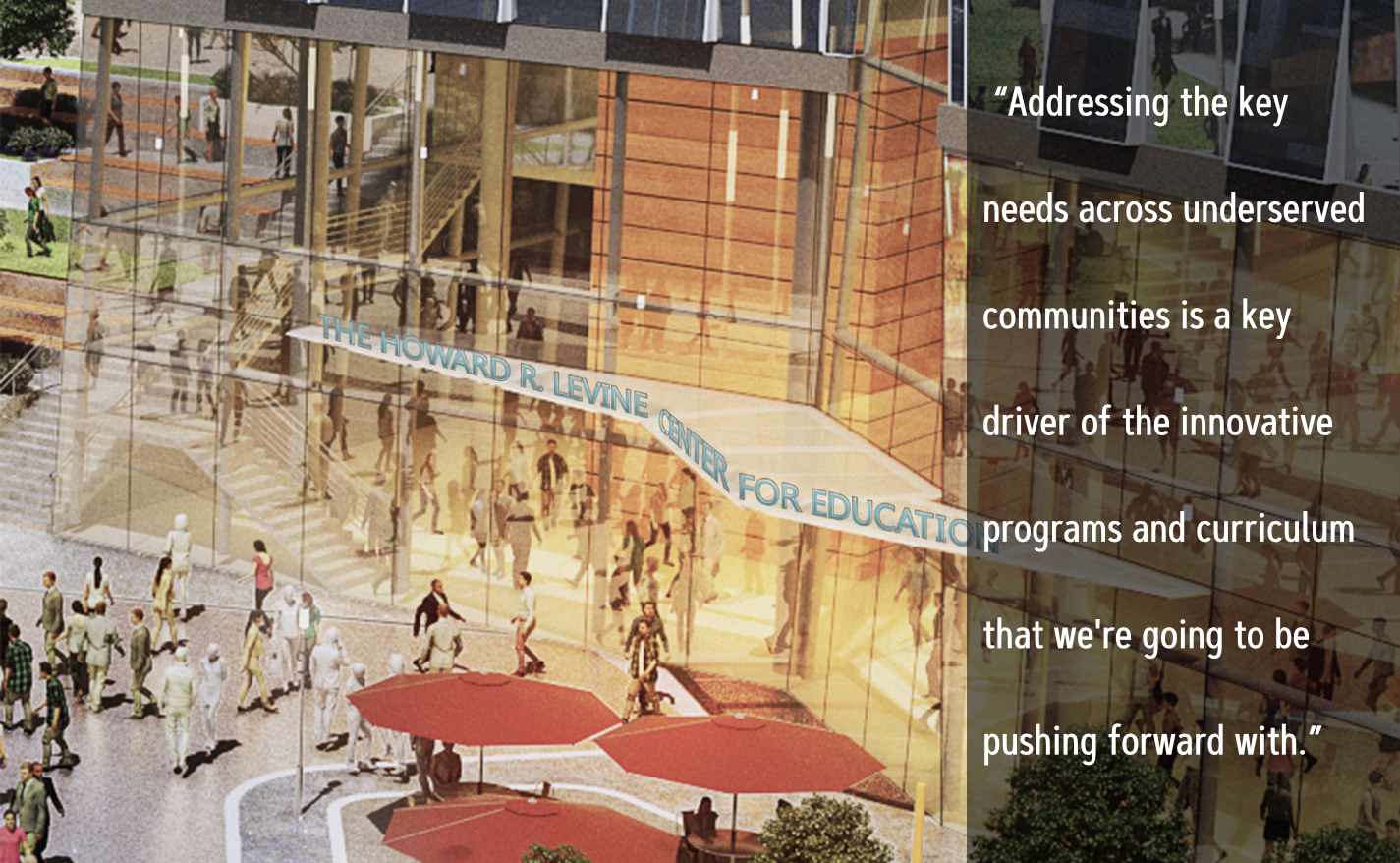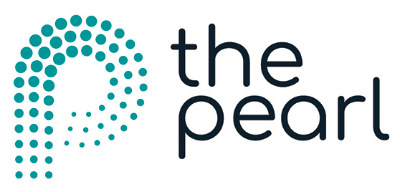![]()
Dr. Rasu Shrestha is helping Atrium Health change from being a "healthcare" provider to one that provides "health" and "care."
Redefining Healthcare
PART TWO
Click here to read Part One. >
Dr. Rasu Shrestha
Enterprise Executive Vice President & Chief Strategy and Transformation Officer
Atrium Health
 AsiaCarolinas: You have been at the forefront of many advancements in health care. You mentioned studying informatics with some of the folks who developed that field. At USC, you were at the heart of the largest tertiary care center on the West Coast. And then you were at the vanguard of Pittsburgh’s explosive growth in research and healthcare delivery. You’re now in another exciting position here focused on strategy and transformation. That has to be exciting, to be at the leading edge of so much change. But it also means you continue to face the same challenge of integrating change into a well-entrenched system.
AsiaCarolinas: You have been at the forefront of many advancements in health care. You mentioned studying informatics with some of the folks who developed that field. At USC, you were at the heart of the largest tertiary care center on the West Coast. And then you were at the vanguard of Pittsburgh’s explosive growth in research and healthcare delivery. You’re now in another exciting position here focused on strategy and transformation. That has to be exciting, to be at the leading edge of so much change. But it also means you continue to face the same challenge of integrating change into a well-entrenched system.
Dr. Shrestha: It's a very insightful question.As you mentioned, in my exciting journey from sunny Southern California, to the throes of Western Pennsylvania, and now to the heart of the Southeast, I’ve had to reinvent myself multiple times. Constant in this has been the challenge of managing change amidst the chaos that we're facing in healthcare globally as we live through the pandemic. Allow me to elaborate.
Looking at my own journey, I truly believe that the United States is the land of opportunities, and if you bring in the intellect and you put in the diligence, you can truly make magic happen. I continue to beat that drum to all of my leaders and teammates. That is, to continue to challenge the status quo and to make sure that you're able to continue to not just think about ‘here’s how we've always done things’ but to consider ‘how do we make not just incremental change, but transformative change that will really move the needle forward in a meaningful way?’
When I started my journey a couple of decades ago, we were, as a healthcare industry, just beginning to embrace digital. I still remember paper charts and films. Moving from analog to digital was a big element of change, and I put into practice the elements of not just doing digital—which is what we've been doing now for a couple of decades—but being digital. Doing digital means you’re moving away from the analog culture by simply digitizing key analog elements. Being digital is thinking in zeros and ones and looking at and interpreting information and insights in ways that could never be represented in the analog world. Beyond merely digitizing what used to be on paper charts, being digital means being able to exponentially leverage digital tools and capabilities to gleam at insights and transform experiences through advanced data analysis, visualization and interpretation in ways we’d never imagined before.
So even if you’re digitizing those analog processes, the opportunity we have in healthcare is to leverage the power of advancements we are making every day in fields like artificial intelligence (AI) and machine learning to power these experiential elements, to move healthcare to another level altogether.
We're looking at these digital capabilities aided by AI, which we already have in practice here at Atrium Health, and they are augmenting the care that we’re able to provide. The AI algorithms help us improve the care that we’re providing to our patients, because they augment the insights that we're using to co-create the path forward with our patients. I believe it is fundamentally at the heart of the transformation that we're going through at Atrium Health, and hopefully, leading that charge on behalf of the rest of the industry.
AsiaCarolinas: Tell us more about the transformation you’re leading at Atrium Health.
Dr Shrestha: The reality of the healthcare industry is that one’s journey through healthcare as we know it today is often mired in complexities, chaos and costs. This has been true for not just the last couple of decades, but for centuries. What we're bringing into practice here at Atrium Health, is thinking well beyond the traditional view of that patient, to a broader view of a person.
We are moving from “sick care" to “whole person care.” We are widening the aperture and looking at this as a person-centered approach to health — so it’s not just healthcare, but health and care. Healthcare has traditionally been a sick care business. It's been about getting better from an illness and making sure that in the complexity, you don't get lost in that shift. We can and must do better than that.
For us at Atrium, we're thinking not just about what a patient needs medically, but about that person and a holistic view of what matters to them more broadly — biologic, sociodemographic, cultural, and behavioral. It’s about the moments that matter. Healthcare needs to acknowledge that patients are more than just their presenting symptoms when they “show up” at a health system. It’s important for us to widen that aperture and think about that patient’s wants and desires, and the specifics of what we need to do to personalize the care for that individual. That includes when the patient steps into any of our facilities, or has a digital engagement—perhaps on our web site, or interacting with us through an AI-powered chat bot, or with one of our digital apps, or on a virtual appointment with a physician.
What's the first question that most health systems ask when you walk into a facility? They say, ‘Hello, what brings you in today?’ If you think about it, we shouldn't really be asking that question. We should already know why that person is coming to see us. Done right, we should move away from just the episodic interactions to a more continuous trust based and value driven relationship. And we should build on that relationship by leveraging the power of data, science, and medicine, and know at a granular level how we personalize the care to that individual.
For the longest time, and especially in the last couple of decades, healthcare has been mired in a highly transactional system. We are attempting to move beyond those mere transactions, and we’re saying, ‘Look we're really focusing in on the experience. We want to make sure that we understand your wants and your desires, but also the motivators that nudge behaviors in the right direction for you as a person, not just as a patient. That is then translated into the data algorithms that we're leveraging: the specifics of the science and the medicine that we’re often co-architecting with the patient to provide the care that we need to be putting in place.
AsiaCarolinas: That also raises the question about the impact on the Asian community in our region, which is diverse and has different cultural approaches to health and wellness — not to mention how people interact with the established health care system.
Dr. Shrestha: The diversity and inclusion opportunities in the Carolinas are indicative of broader challenges across our nation. There is so much diversity here, and I think it's really important for health systems to not take a one-size-fits-all approach to a patient. Personalizing that care is critical. It's such an important element of what we do here with data and analytics. My team is charged with strategy planning for the organization, and the innovations that we're pushing forward across the enterprise. We’re formulating partnerships with industry and community organizations. I think data and analytics that take into account the diversity of the communities we serve are essential as we personalize the care that we're providing to our patients.
I’m a big data junkie myself. What is key to understand is that it’s not just the data, but the stories behind the data that really matter. I truly believe that stories are essentially data with a soul. So how do we leverage data that exists in our electronic medical record systems as well as other siloes of data repositories — and marry these up with patient’s own preferences, their biases, their beliefs, their cultural upbringings—and use these to then derive the right elements to empower the right interventions, encourage behavior change and the actions that come out of those human interactions. I think that it’s really important to take much more of a data-based personalized approach to care that takes into account these broader elements that tap into the patient’s story, and their journey forward towards better health.

AsiaCarolinas: You experienced many cultures in your youth. Your son who moved from southern California to western Pennsylvania had his own culture shock.
Dr. Shrestha: Absolutely, a little bit of the culture shock that I’ve gone through multiple times. But I think it’s very enriching for anyone to go through a change — living in different lands, whether it’s different cities or states or different countries and continents. My family has been my bedrock, my north star, and my firmest support system, regardless of where we’ve lived. My wife and I have been trying to instill core Asian values, balanced with realistic and practical life skills to help enrich our kids’ own journeys through life.
AsiaCarolinas: Instead of saying ‘healthcare’, you refer to ‘health’ and ‘care,’ which seems like the right approach. Physicians, though — and primary care physicians — have so little time in a day to integrate this all together. That has to be a major challenge. That approach isn't taught in medical school
Dr. Shrestha: We just launched our IMPACT 2025, an ambitious four-year strategic plan for our organization. I am really proud of the fact that when we talk about a person-centered approach to health and care, the enablers of this transformation are essentially ingrained in the very strategies that we’re formulating. It's going to be really important for us to widen that aperture and not just focus on sick care, but also well care and preventative care.
I think it's important for us to understand what is important to really thrive — not just surviving, but thriving and living your best possible life. That's the health and care journey that we all want to be a part of, and I think it is possible. In fact, I know it’s possible. It is ingrained in our strategic path forward.
AsiaCarolinas: To that point, Atrium Health has of course announced a new medical school and innovation district ("The Pearl": see below) not far from your main campus, in partnership with Atrium Health Wake Forest Baptist, an affiliate of Wake Forest University in Winston-Salem. People don’t typically go out and build medical schools these days, but especially not ones that are also designed to be a change agent for the community. Tell us about the unique approach you are taking with that endeavor.
Dr. Shrestha: Absolutely. Community impact is fundamental. Critical to our 2025 strategy are the elements of how we, alongside our partners across the ecosystem we’re building, can truly impact health, learning, and community. There's never been a more urgent time to address the needs of our communities. We're over two years into living through this pandemic, and in so many ways, the pandemic has shone a light on the cracks and faultlines that exist in the delivery of healthcare across the United States. One of the big things that it has shown us is the urgency of the need for us to finally address the social impact issues.

EDITOR'S NOTE
 Wake Forest University School of Medicine Charlotte is part of a new development that Atrium Health has dubbed "The Pearl." Breaking groundlater this year. The Pearl is a multi-phased, mixed-use development that will feature office, lab, retail, and residential — including affordable housing and community gathering and academic spaces. The medical school is part of The Pearl's first phase.
Wake Forest University School of Medicine Charlotte is part of a new development that Atrium Health has dubbed "The Pearl." Breaking groundlater this year. The Pearl is a multi-phased, mixed-use development that will feature office, lab, retail, and residential — including affordable housing and community gathering and academic spaces. The medical school is part of The Pearl's first phase.
For more on The Pearl, click here >
Dr. Shrestha Shares the Latest Updates on The Pearl
Dr. Shrestha shares how The Pearl will transform Charlotte as we know it. READ MORE >
What drove me to move from what was a dream job in Pittsburgh to what is now another dream job here at Atrium Health, is the opportunity to have a direct impact on the communities that we're a part of. This will be the first medical school that will be built on this side of the pandemic. It is the second campus of the Wake Forest University School of Medicine, so there are lessons learned that we will bring forward. This will be Charlotte's first four-year medical school, and with the amazing work that is already being put in place, we are confident that it will also be the most innovative medical school in the country. This new medical school will be the most differentiated medical school in the country too, with a curriculum that speaks to the specifics of how we need to transform the industry to the elements that we’ve just been talking about.
We've been designing the specifics of this medical school to address key elements, like the shortage of doctors in rural and underserved urban communities. We're also creating one of the nation's most diverse student bodies that will be reflective of the rich diversity of the communities we serve. We are establishing a scholarship fund to open up education pathways to people from underserved areas to study health sciences. Addressing the key needs across underserved communities is a key driver of the innovative programs and curriculum that we're going to be pushing forward with.
AsiaCarolinas: Based on your experience in southeast Asia and in other parts of this country, what kind of perspective do you have on the various Asian communities in this region. How can we make sure that we're including people and reaching them with the right messaging and services?
Dr. Shrestha: When I put that against the lens of the pandemic that we're still living through, one of the wake-up calls we need to embrace as a country is that we are truly one global community. A pandemic that started in one part of the globe has affected every one of us in the nooks and crannies in every state, county, city, and rural community.
There’s a reason why the most talented and the brightest who are seeking those opportunities to make a difference in their lives are gravitating towards Charlotte. The diversity of the Asian population here is testament to the fact that this global community that we are a part of, this melting pot that is Charlotte, is really ripe for innovation. The growth and transformation that we’re witnessing Charlotte lead provides the fertile ground for us to embrace those hearts and minds and desires that are embedded in every one of those cultures and languages and ethnicities and backgrounds, and truly lead by example.
So, the key question for us is, how do we capitalize in on that ecosystem? How do we approach the diverse community that is out there, so that we can then find the commonalities in the mission, so that we’re stronger together? We've got a growing sector of diverse talent moving here, and Charlotte is well-positioned to drive growth in globally competitive industries to create more quality jobs that strategically coordinate research on the university side and innovation in the private sector. Those are the things that I think of as an ecosystem, as this melting pot. We have an opportunity to truly make a difference, bringing forward the best of who we are as individual cultures, individual people with individual capabilities – to a thriving ecosystem of believers and do-ers, aligned to delivering on a mission that is bigger than any one of us.
AsiaCarolinas: Let’s shift gears a bit. You arrived in Charlotte both at the right time—but also at the wrong time for really being able to experience Charlotte. What has your experience here been like so far?
Dr. Shrestha: It’s three years for me this past February. My wife, who is a radiologist and truly my better half, and my most ardent support system throughout my married life, has been instrumental in getting me and our family to make Charlotte our home. Our two boys, now 12 and 15, have been truly resilient and have kept us grounded in what’s important. For me specifically, outside of work, I spend most of my time with my family. I think this is true for many, not just in the Asian community, but across our communities here in the Southeast. The pandemic didn't give us too many options, but at the same time, it was also a silver lining for us to spend so much time together. We were able to really prioritize what it means to be a family. Our time together struggling with the challenges of the pandemic, whilst being in a new city, reaffirmed to our family what we’d known all along: the most important things in life, aren’t things. They are our values, moments and time together as a family.
Work-life balance has been a challenge! We got a pandemic puppy, Millie, and we’ve been blessed to have her in our lives.. In my free time, I also enjoy cooking and gardening, and traveling with the family when possible! We try to also spend time as a family playing games or watching Netflix. Most recently, we watched a new documentary called 14 Peaks: Nothing Is Impossible. I highly recommend it your readers. It tells the story of a Nepalese mountaineer named Nirmal ‘Nims’ Purja. His quest was to climb 14 of the highest mountains—all higher than 8,000 meters—but there’s a catch. It would be a major feat to do that in a lifetime, but his quest was to climb all 14 of these peaks within seven months. And he did it! With our family having roots in Nepal, we loved watching this documentary together. It sent chills down our spines. For me, as a person who was born in the Himalayas, and for my boys and my wife, who have been to Nepal multiple times, it was very inspiring. When it comes to family, it is true that like branches on a tree, we all grow in different directions, yet our roots remain as one.
AsiaCarolinas: You mentioned that you were a sports captain back in the day, and you still look incredibly fit. What sports do you follow or do you participate in these days?
Dr. Shrestha: Thank you. Unlike Nims Purja, I am not a mountain climber, although what I do at work sometimes feels like hanging off of a cliff. Or metaphorically, it’s like being at base camp looking up at the summit of that mountain that is the healthcare industry. I try to keep myself as healthy as possible in the time that is afforded to me, focusing both on physical and mental health. I spend some time on my Peloton, and round that up with weights and meditation. My older son just started high school. He is an avid runner, and I’m really proud of that as well. He actually made it to the state championships and came in second for his grade level. And the younger son loves tennis and football. They both inspire me and my wife every day to stay active!
AsiaCarolinas: You also serve on the board of the Blumenthal Performing Arts Center. How are the arts important to you and to your work at Atrium?
Dr. Shrestha: Art has such a remarkable healing power. When I talk about being a physician and a strategist and as an executive in a system like Atrium Health, it's a daily reminder that we need to embrace the power of the healing potential of art. It’s a privilege for me to serve on the board, and be a part of a leadership team pushing forward with programs like the immersive Van Gogh exhibit or other initiatives that Blumenthal Performing Arts continues to lead. As much as anything, art is about human interactions. And there’s no industry that is more human than healthcare. So it’s critical for us to safely get back to what we as humans are designed to do, which is in-person interactions. Even in this “next normal” that we’re living in, I believe art has such a critical role in our healing process. As Jackson Polleck said, “Art is coming face to face with yourself.” It is about sparking creativity, comforting the disturbed and disturbing the comfortable.
AsiaCarolinas: Is there anything we missed that you would like to cover?
Dr. Shrestha: In the14 Peaks documentary, Nirmal Purja said something that I think is profound. He said, ‘I have to compete against myself to be better than who I was yesterday.’ That's really important. When people look at the Asian community, we're often trying to understand, ‘What does that look imply? Is it a look of curiosity? Of hope? Of suspicion? Or is it something else?’ I think we're always challenging ourselves to put our best foot forward, to lead first with empathy and our intellect.
It's not about competing with each other. It's not about competing with people of other races and colors and creeds. It really is about competing with yourself and being a better version of yourself today than you were yesterday. That’s a life mantra for me as a physician, as an executive, as an innovator, and as a strategist. And I think it works for everyone, no matter who you are or what you do.
